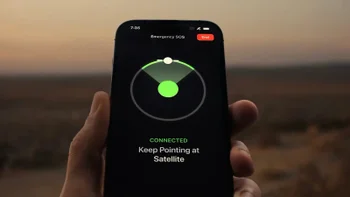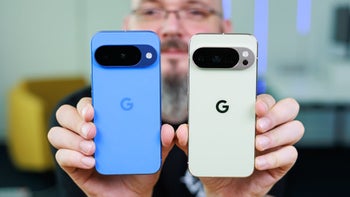US official says Huawei's controversial chip is "years behind" US semiconductor technology

US Commerce Secretary Gina Raimondo said on "60 Minutes" that she's not impressed with Huawei's chips (like the one in the Mate 60 Pro) – the tiny pieces of technology that got US officials the night sweats last year. After all, Huawei is so heavily sanctioned by the US that this 5G capable phone, the Mate 60 Pro, should have never materialized.
Now, Gina Raimondo says that US curbs on the Chinese giant are working:
Could it be that she came across our story about the gap between Huawei's new Kirin 9010 chip and older Snapdragon chips?
Joking aside: despite lagging behind in numbers, the latest Kirin chips are nothing short of impressive, given that they are manufactured without access to proper cutting-edge equipment because of the US-imposed restrictions.
As my colleague Alan puts it: "Huawei continues to innovate with one arm tied behind its back and it makes you wonder what it could achieve without the sanctions imposed against it by the US". That's because Huawei's recently released Pura 70 line can apparently send photos by satellite when no cellular connectivity is available.
There's no other phone that can currently do that – including the iPhone.
Huawei, placed on a trade restriction list since 2019, surprised both the industry and the US government last August by unveiling a new phone equipped with a sophisticated chip. The Huawei Mate 60 Pro was viewed as a symbol of China's technological advancement, despite ongoing efforts by Washington to hinder its ability to manufacture advanced semiconductor technology (via Reuters).
The US has been engaged in a multi-year campaign to prevent Beijing from acquiring advanced semiconductor chips and the necessary manufacturing tools, citing concerns about their potential use in enhancing China's military capabilities.
Despite this, Huawei's suppliers, including Intel, have been granted licenses worth billions of dollars to continue selling to the company. Huawei's recent unveiling of its first AI-enabled laptop, powered by an Intel chip, has sparked outrage among many US officials.
"When I tell them they can’t sell their semiconductors to China, they may not like it, but that's what I do," she emphasized.
What it tells me is the export controls are working because that chip is not nearly as good, [...] it's years behind what we have in the United States. We have the most sophisticated semiconductors in the world. China doesn't.
Could it be that she came across our story about the gap between Huawei's new Kirin 9010 chip and older Snapdragon chips?
As my colleague Alan puts it: "Huawei continues to innovate with one arm tied behind its back and it makes you wonder what it could achieve without the sanctions imposed against it by the US". That's because Huawei's recently released Pura 70 line can apparently send photos by satellite when no cellular connectivity is available.
The story so far
Huawei, placed on a trade restriction list since 2019, surprised both the industry and the US government last August by unveiling a new phone equipped with a sophisticated chip. The Huawei Mate 60 Pro was viewed as a symbol of China's technological advancement, despite ongoing efforts by Washington to hinder its ability to manufacture advanced semiconductor technology (via Reuters).
The US has been engaged in a multi-year campaign to prevent Beijing from acquiring advanced semiconductor chips and the necessary manufacturing tools, citing concerns about their potential use in enhancing China's military capabilities.
Despite this, Huawei's suppliers, including Intel, have been granted licenses worth billions of dollars to continue selling to the company. Huawei's recent unveiling of its first AI-enabled laptop, powered by an Intel chip, has sparked outrage among many US officials.
When questioned about her stance on corporate accountability, Commerce Secretary Gina Raimondo was resolute. "I hold businesses accountable just like anyone else," she underscored on "60 Minutes".
"When I tell them they can’t sell their semiconductors to China, they may not like it, but that's what I do," she emphasized.
Follow us on Google News













Things that are NOT allowed:
To help keep our community safe and free from spam, we apply temporary limits to newly created accounts: